On October 24, 2023, UN Women, together with Compact Board Co-Chairs Norway and the Global Network of Women Peacebuilders (GNWP) and Compact Board Members hosted an event marking the release of the inaugural 2022 WPS-HA Compact Accountability Report. The report reviews the implementation of signatory actions in 2022 and how the Compact helps strengthen action, opportunities for collaboration, and accountability. The event took place on the occasion of the 23rd anniversary of the UN Security Council resolution 1325 and two years since the launch of the WPS-HA Compact at the Generation Equality Forum in Paris in 2021.
While military expenditure continues to skyrocket, financing for gender equality in conflict and crisis contexts – as well as for women-led organizations – remains severely inadequate. Against this backdrop, the report reveals that 59% of implemented actions were in a country where peace has declined between 2021 and 2022. It also shows that 71% of signatories reported on the Compact’s principles of transformation, which promote localization, intergenerational action, inclusivity, and intersectionality, as well as multistakeholder action across the humanitarian-development-peace nexus.
The event highlighted the commendable progress made by Signatories and showcased how self-reporting through the Compact platform contributes to improved accountability, stronger coordination, and the advancement of evidence-guided strategies for sustainable peace. The convening was moderated by Harriette Williams Bright, WPS-HA Compact Lead at UN Women.
“At the time when we are faced with so many conflicts and crises around the world, we face renewed urgency to act on our commitments to women, peace and security and gender-responsive humanitarian action,” said Paivi Kannisto, the Chief of Peace and Security at UN Women, in her welcome remarks.
Kannisto also shared some of the key findings of the report, including that 66% of eligible signatories completed all of the requested reporting, and that signatories spent an estimated $958 million to implement Compact actions in 2022, reaching 22.1 million girls.
The event was followed by opening remarks from Board Co-Chairs Norway and GNWP represented by Signe Gilen, Special Envoy for Women, Peace and Security at the Norwegian Ministry of Foreign Affairs and Mavic Cabrera Balleza, the Founder and Chief Executive Officer of GNWP.
“The security situation is challenging on all continents of the world, we are in the aftermath of a global pandemic and in the midst of several deep and ongoing conflicts. Hence the women, peace and security agenda is more important than ever, and women need to be included in all work related to peace and security. Participation is actually their best protection,” said Gilen.
While the lack of political will and systematic accountability measures are still hindering women from participating in peace and security, “the report illustrates how increased accountability leads to better coordination, greater impact and practical strategies that bring about inclusive and sustainable peace,” said Cabrera Balleza.
“We don’t shy away from being held to account, instead, we come forward to model accountability and transparency. Because an effective mechanism for collective accountability is crucial for the Compact’s success,” she said.
The Compact acknowledges the lack of accountability by installing the principle of self-accountability across the multitude of actors upon which the WPS agenda relies, explained Pravina Makan-Lakha, the Advisor on Women, Peace and Security at the African Centre for the Constructive Resolution of Disputes during her remarks. The Compact and the 2022 accountability report also bridge the gap between women, peace and security and humanitarian action – a previous missing link in assessing systematic progress, she explained.
“We hope the Compact will be used as a tool amongst signatories and beyond for sharing actions, ideas and learning while striking a balance of multiple reporting requirements for the WPS community, said Tess Phippen, the Head of Women, Peace and Security, Foreign, at the Commonwealth & Development Office of United Kingdom.
Amani Aruri, the Youth, Peace and Security Ambassador of Karama also shared an account of the current situation for women and girls in Gaza, Palestine including that out of the 17,000 hurt at the time of the event, about 75% have been women. “This is the most important time for the Compact to show its support and actions to achieve peace and security and justice and respond to this catastrophic humanitarian situation in Gaza,” she said.
Speakers highlighted several other ongoing conflicts, including in Sudan, Afghanistan, Ukraine, Haiti, and Democratic Republic of the Congo, and their continued impact on women and girls.
Here are some of the key takeaways from the event.
1. More financing still needed
While commendable progress has been made on financing women-led organizations, the report highlights that women-led organizations on the ground still lack access to and adequate funding, according to Lara Scarpitta, the Senior Advisor on Gender Issues in the Office of the Secretary General at the Organization of Security and Co-operation in Europe (OSCE). Collecting hard evidence is the first step in addressing these challenges and is also key for advancing advocacy efforts. Therefore, it’s important to strengthen our internal capacity to better track the resources allocated to the WPS agenda, she explained.
Catherine Andela, the Chief of the Gender Unit and the Senior Gender Advisor at the UN Department of Peace Operations asked how we can better report on funding to local NGOs and women-led organizations in deep, humanitarian settings in order to gain valuable data – including from remote areas without financial institutions where access is particularly difficult. “The Compact says long-term funding, but how do you fund in humanitarian settings when it’s about life saving?”, she asked, highlighting that women at the grass-roots level need to be able to access funding.
2. Continue to invest in youth
Caryn Dasah, the Founder of Hope Advocates Africa & National Coordinator of the Cameroon Women’s Peace Movement addressed the importance of meaningful youth participation. “As an inclusive and intergenerational movement, the Compact has had a strong focus on engaging women in the implementation of the WPS agenda,” she said.
Young women-led organizations are frequently engaged as decision makers in the Compact government structure. ”We contributed to the development of the Compact Framework and monitoring indicators and are engaged as active implementers, not onlookers,” she said.
However, despite the strong results of the report there’s a need to further strengthen youth participation mechanisms, make financial commitments more transparent, and develop better accountability systems to track funding and investments to young people, she added.
3. Advancing participation and localization
Amara Shiek Mohamed Sowa, the Deputy Permanent Representative to the Permanent Mission of Sierra Leone to the UN said that his country has “embraced the promise of women’s empowerment as the surest path towards peace and stability.” Sierra Leone is “one of only three African countries in this Compact and we hope our participation in this initiative can encourage other countries in our region to join.”
He also highlighted that Sierra Leone has made commendable progress through legislative changes that promote women’s access to finance and political positions, including through a 30% quota for women in appointed and elected positions in government.
When it comes to ensuring the participation of women and girls in all their diversity, Professor Toni Haastrup, Chair in Global Politics at the University of Manchester called on stakeholders to explore a deeper understanding of the Compact’s principle of transformation on intersectionality. “We must identify structures of racism and colonialism as they exist…This is not only about naming but about emphasizing that it’s not enough to just bring folks to the table, but to actually change what the table is,” she said.
The WPS-HA Accountability Report revealed that all Member State signatories have adopted and are implementing National Action Plans (NAPs) on WPS. Bineta Diop, Special Envoy of the Chairperson of the African Union Commission on Women, Peace and Security emphasized that the ownership of NAPs is key. “The ownership is important. It’s not coming from the outside but is home-grown,” she said, adding that it’s not enough that plans are owned by only one ministry or the government. Instead, plans need to be inclusive to be sustainable and women’s organizations must ask for it to be implemented, she explained.
4. Putting climate on the agenda
The WPS agenda must also be at the heart of climate security and humanitarian action, said Sharon Bhagwan-Rolls, the Regional Representative for the Global Partnership for the Prevention of Armed Conflict and Programme Manager for the Pacific Women Mediators Network. She also emphasized the need to strengthen women’s participation in early warning, preparedness, and disaster prevention, as well as the importance of considering the impacts of climate-driven disasters.
5. Demilitarization and disarmament
A comment from one of the participants highlighted that no progress has been made on disarmament and underscored the need for more accountability and reporting on the issue. Kannisto added that no one Compact signatory has reported achievements on disarmament, and that more needs to be done. Several other interventions also pointed to increased military spending and the need to demilitarize peace and security efforts.
To conclude the event, Sarah E. Hendriks, the Deputy Executive Director a.i. for Policy, Programme, Civil Society and Intergovernmental Support at UN Women congratulated all Compact members and signatories for their leadership and for the release of the report. “When I look at this accountability report… it is this focus on accountability that gives me hope. And hope is in shortchange these days so we should put our attention where there is hope. We know that we have not yet tried everything in our toolbox to ensure a peaceful and stable world for all, and specifically a gender-equal world,” she said.
Hendriks added that, “this Compact presents an opportunity for us to collectively work together to ensure that values underpinning Women, Peace and Security and gender-responsive humanitarian action are really at the forefront of the world’s response to conflict and crisis.”
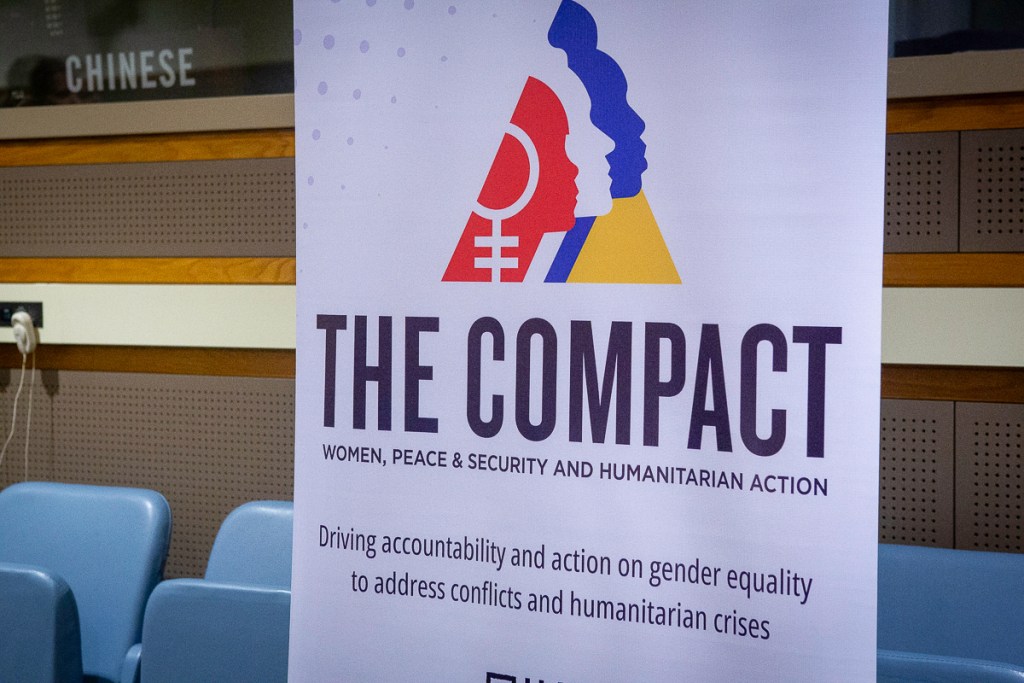
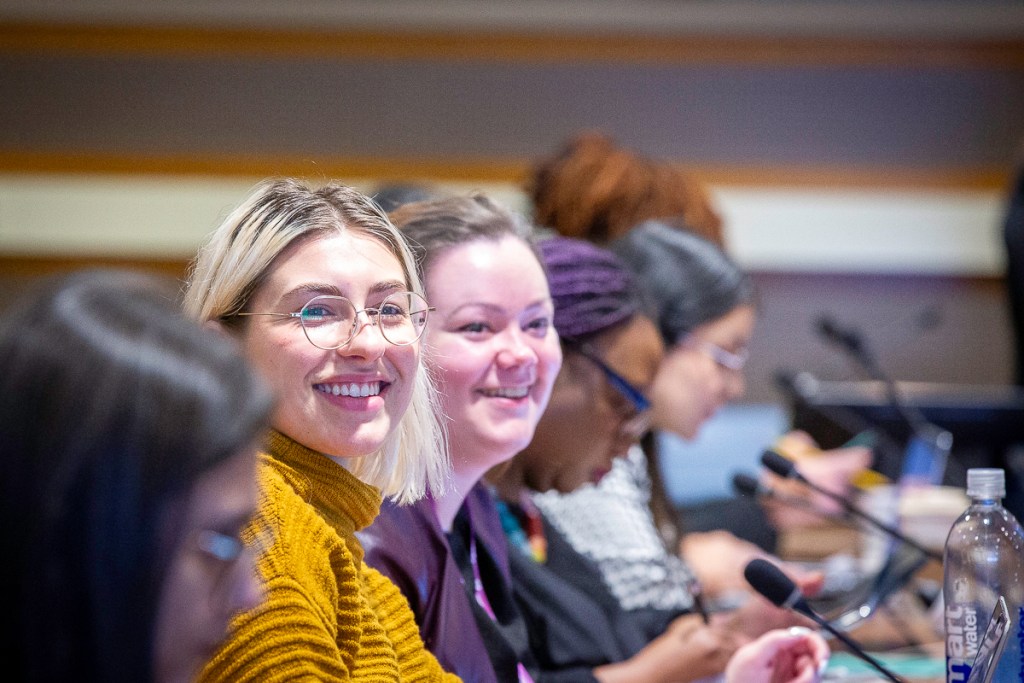
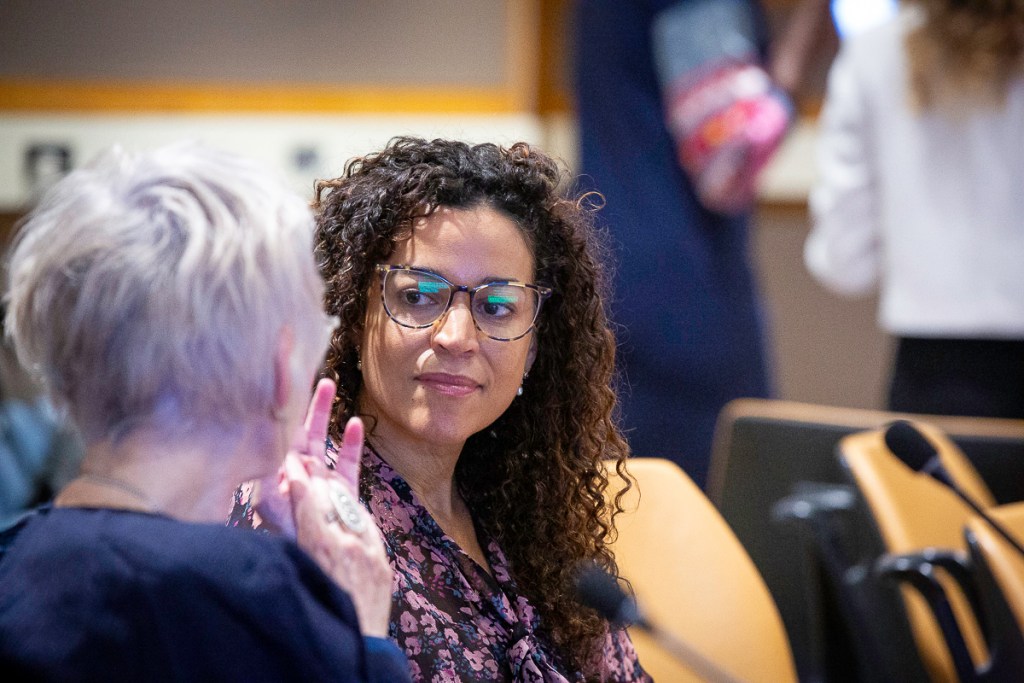


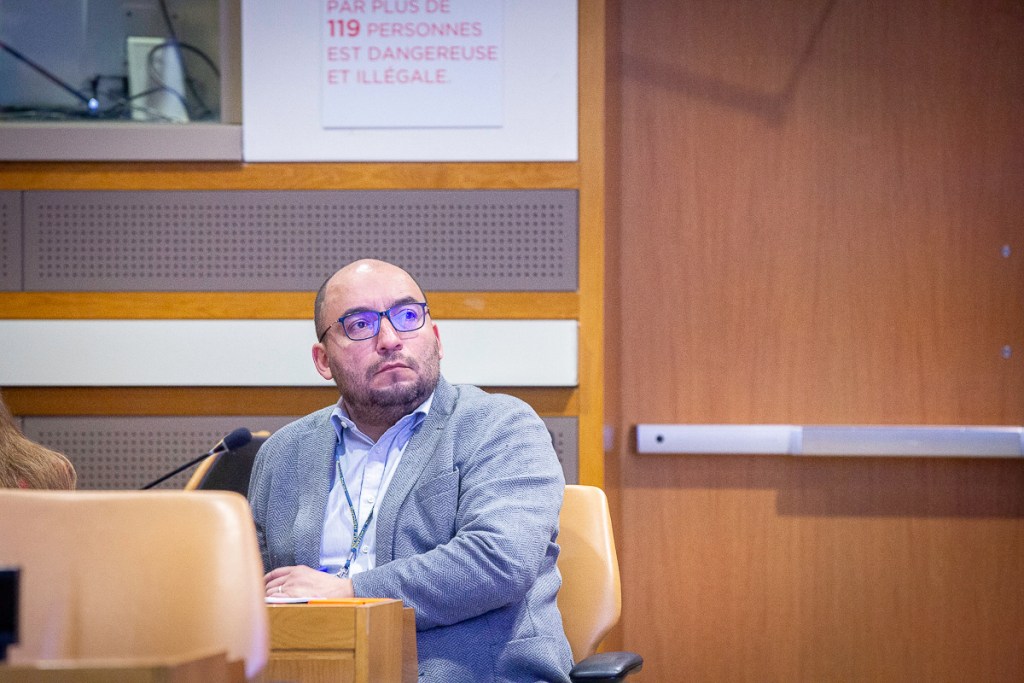


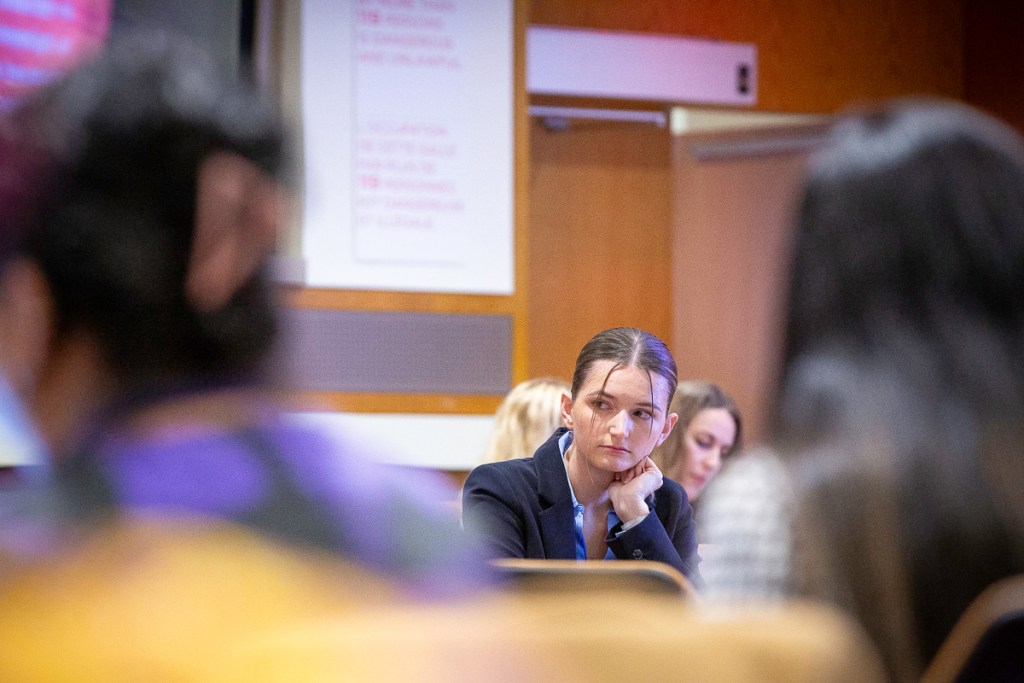
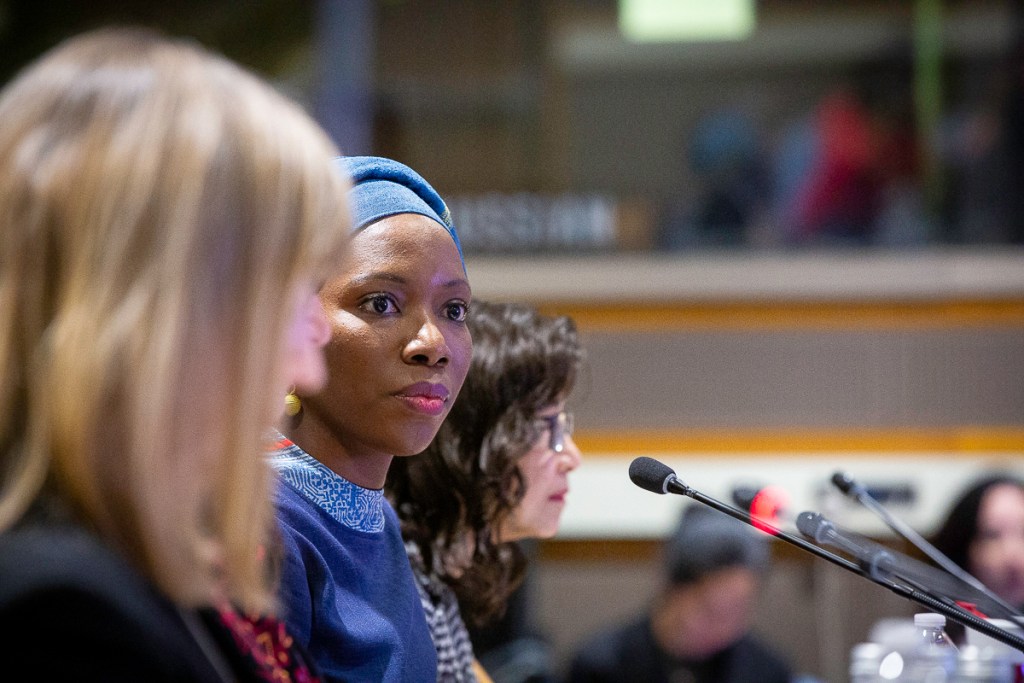
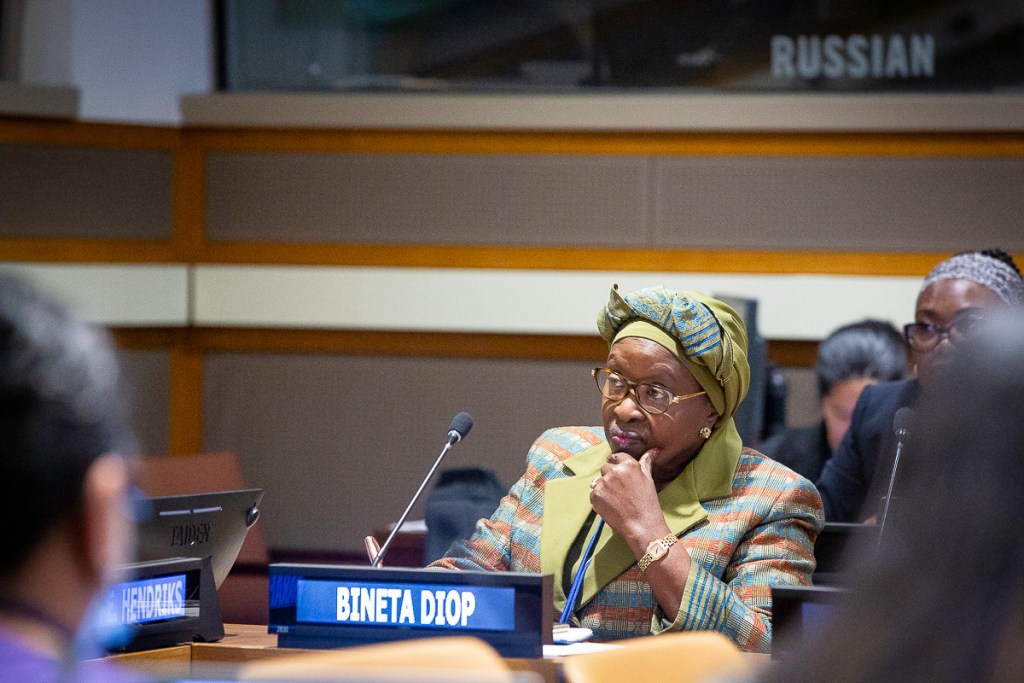
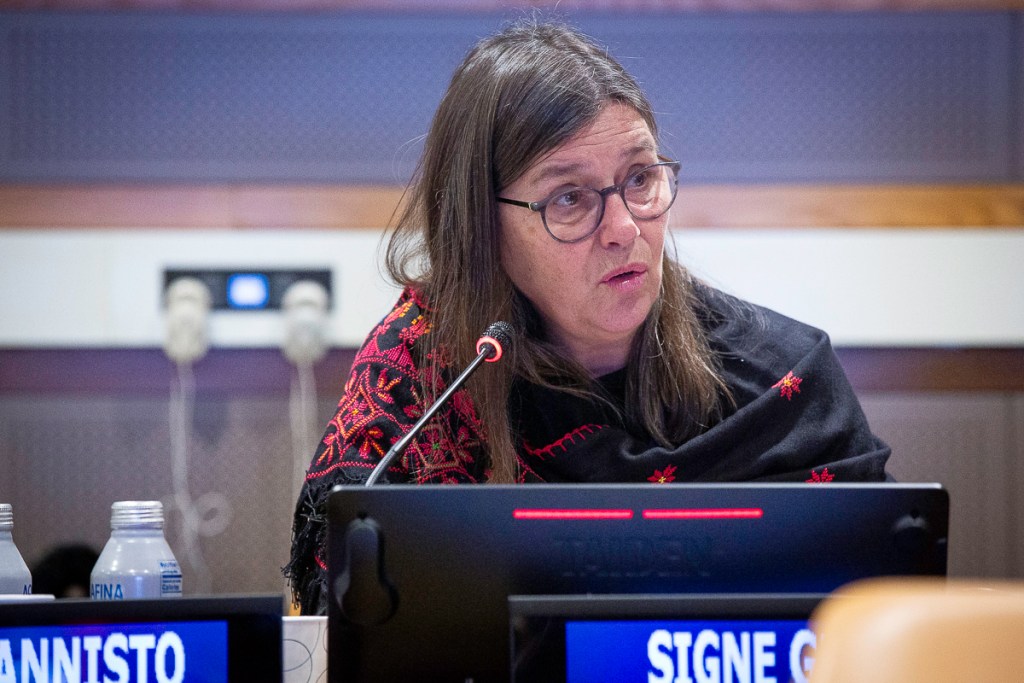
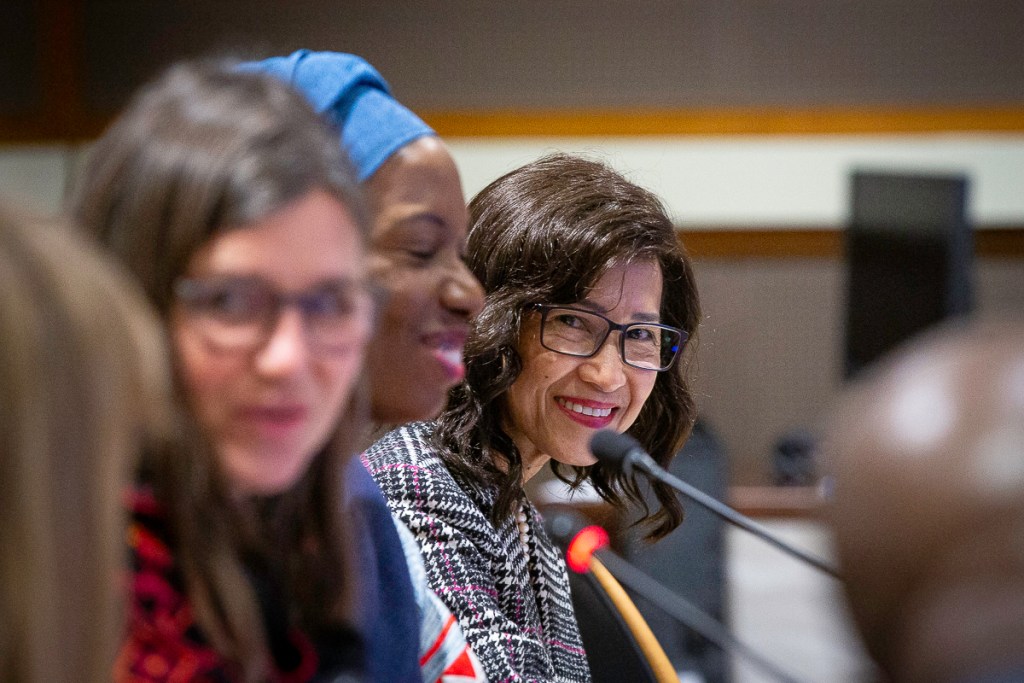
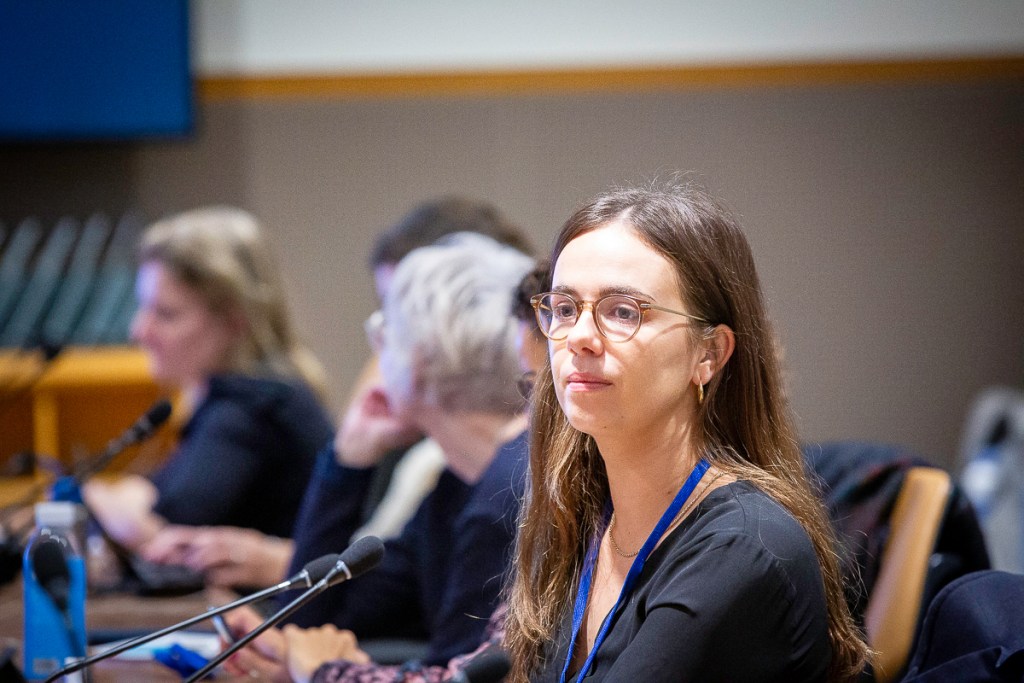
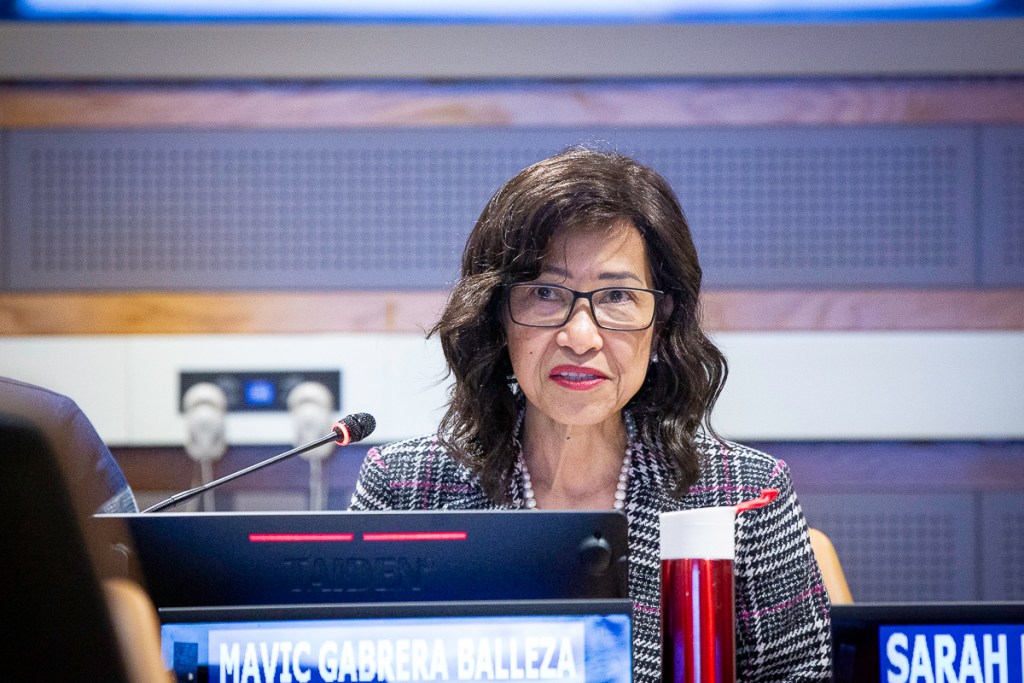
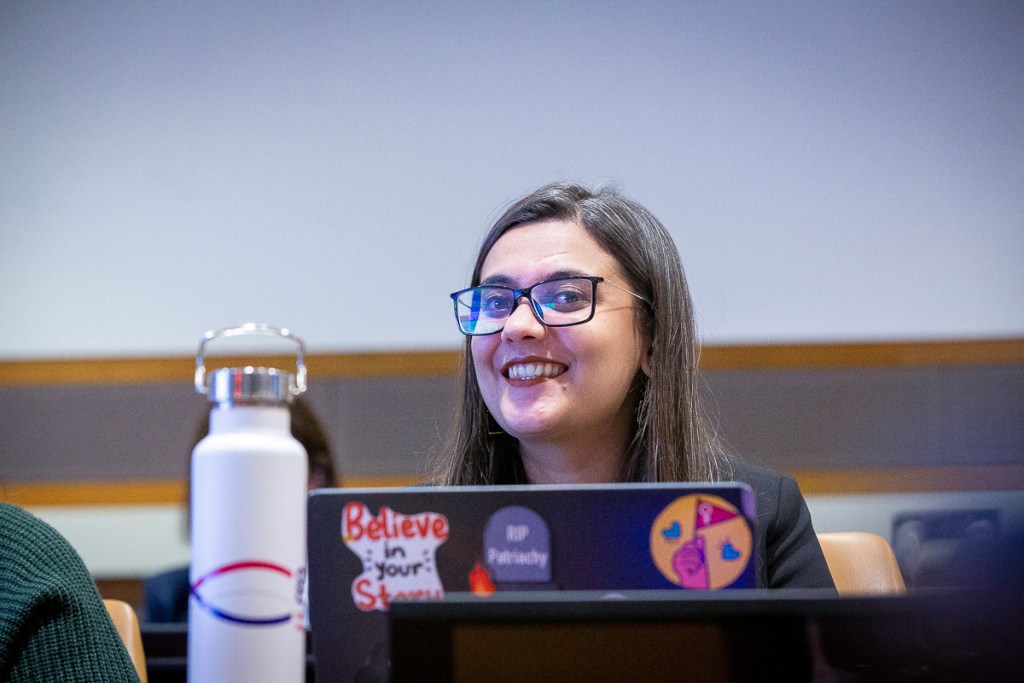
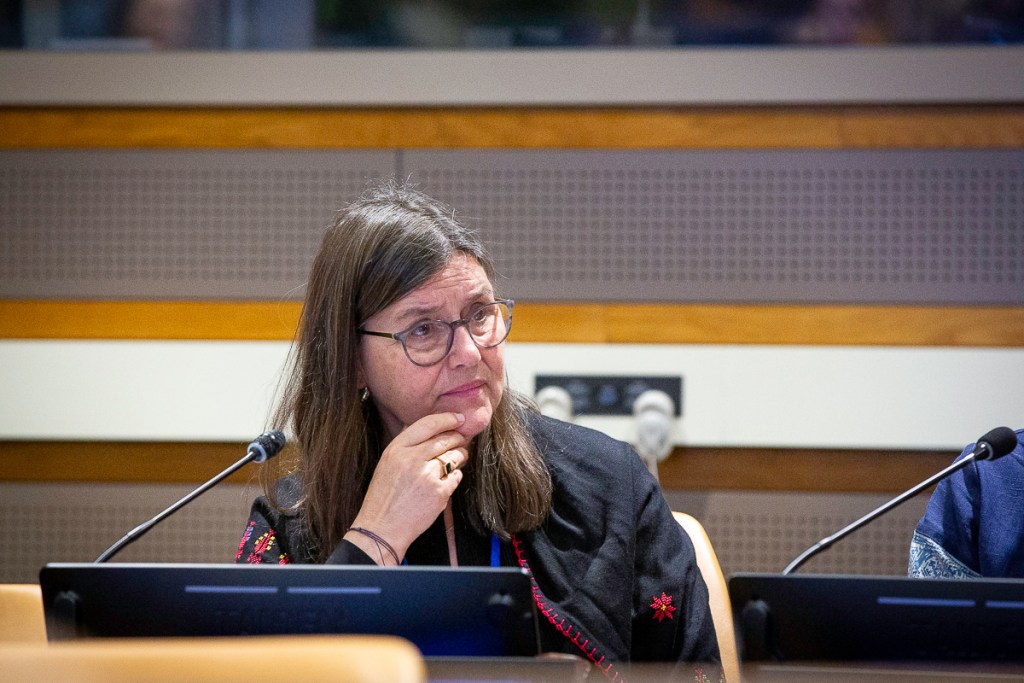
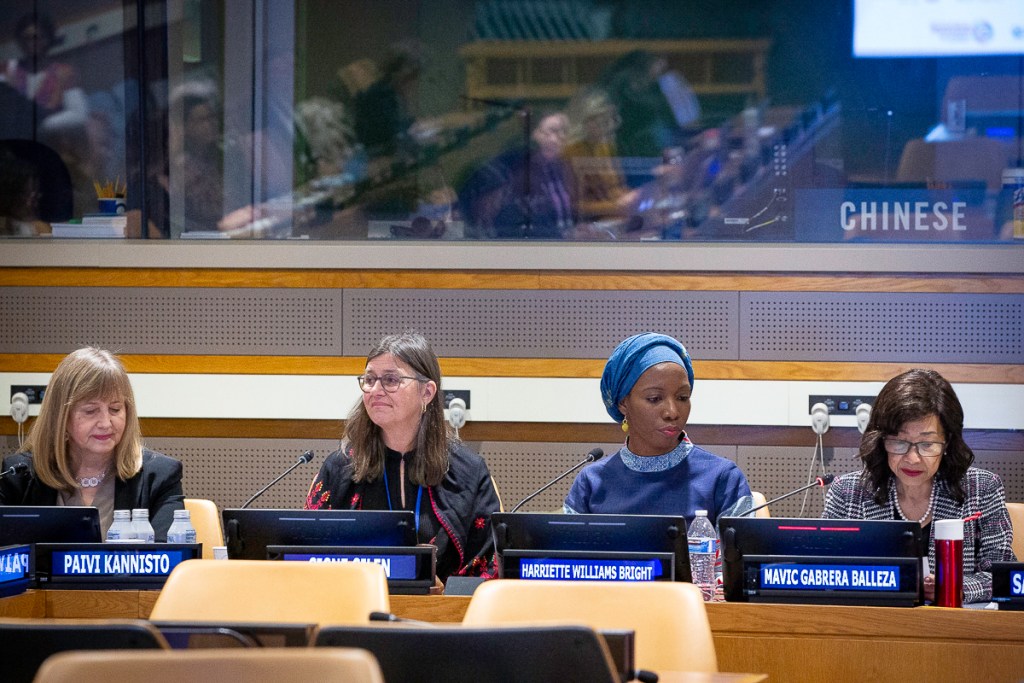




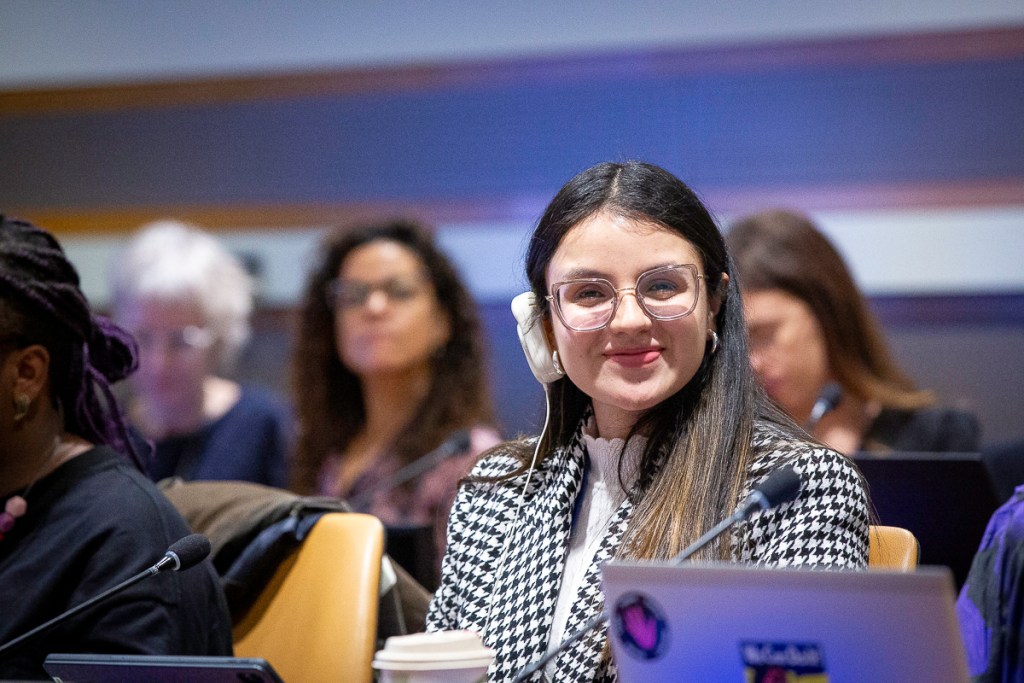
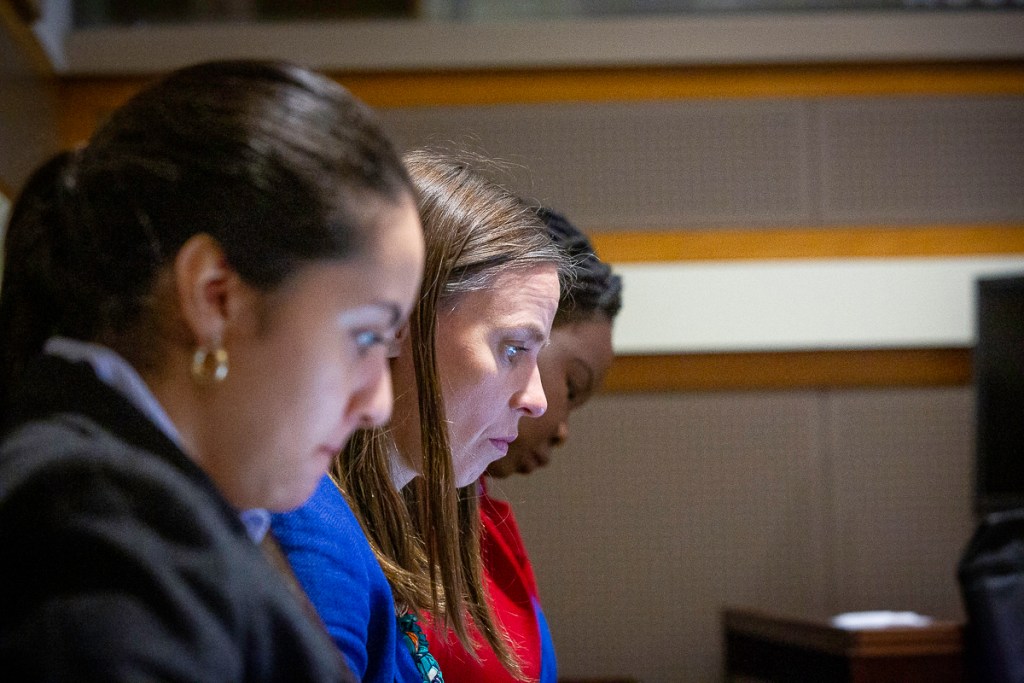
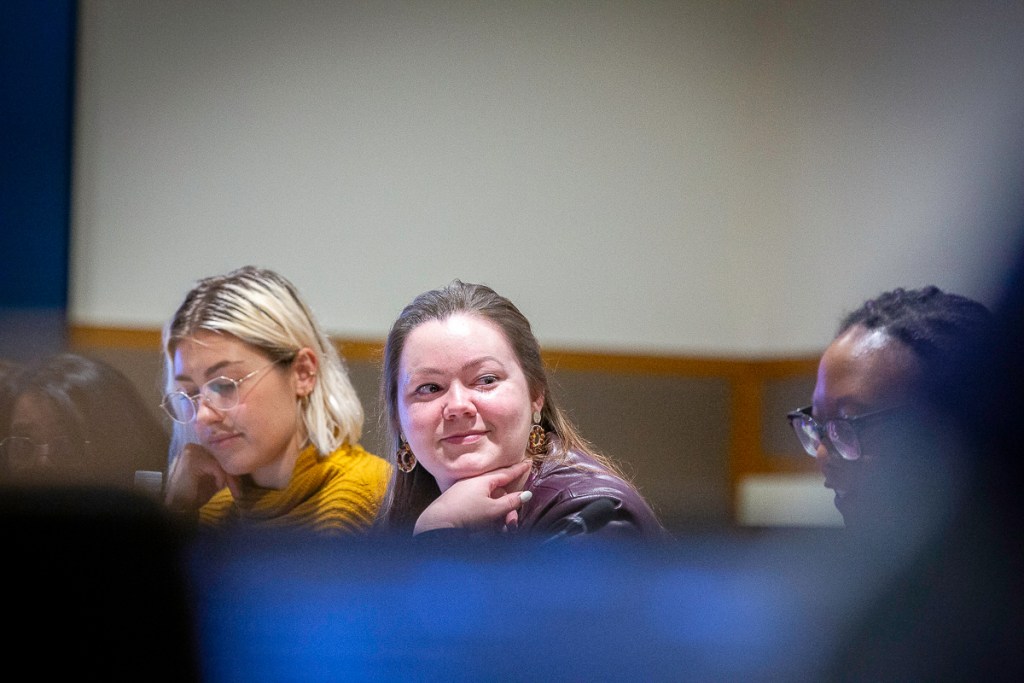

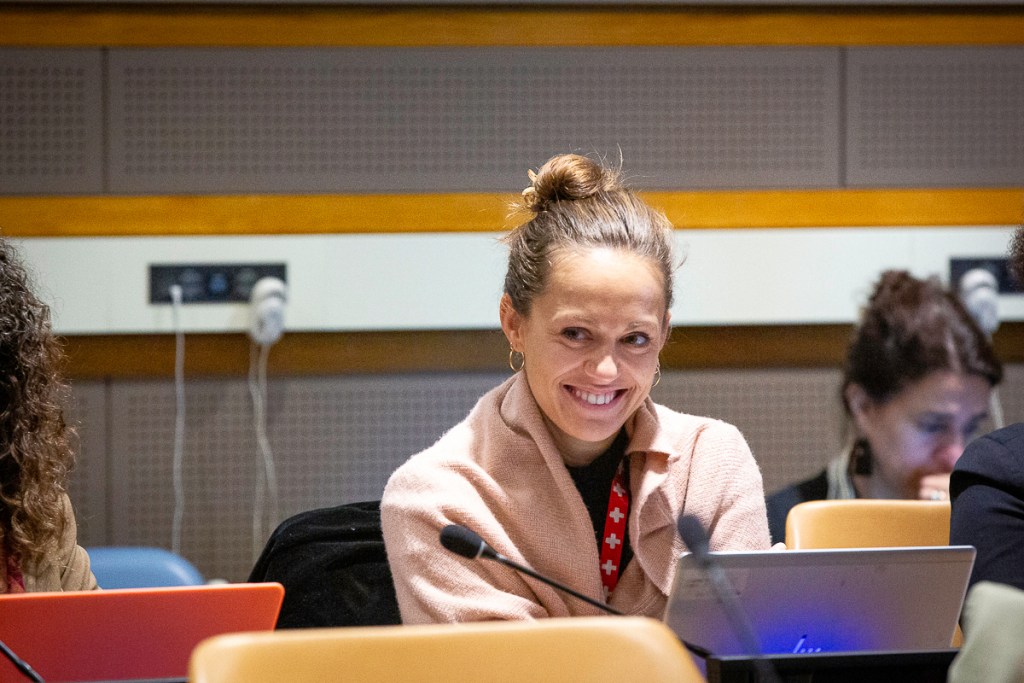
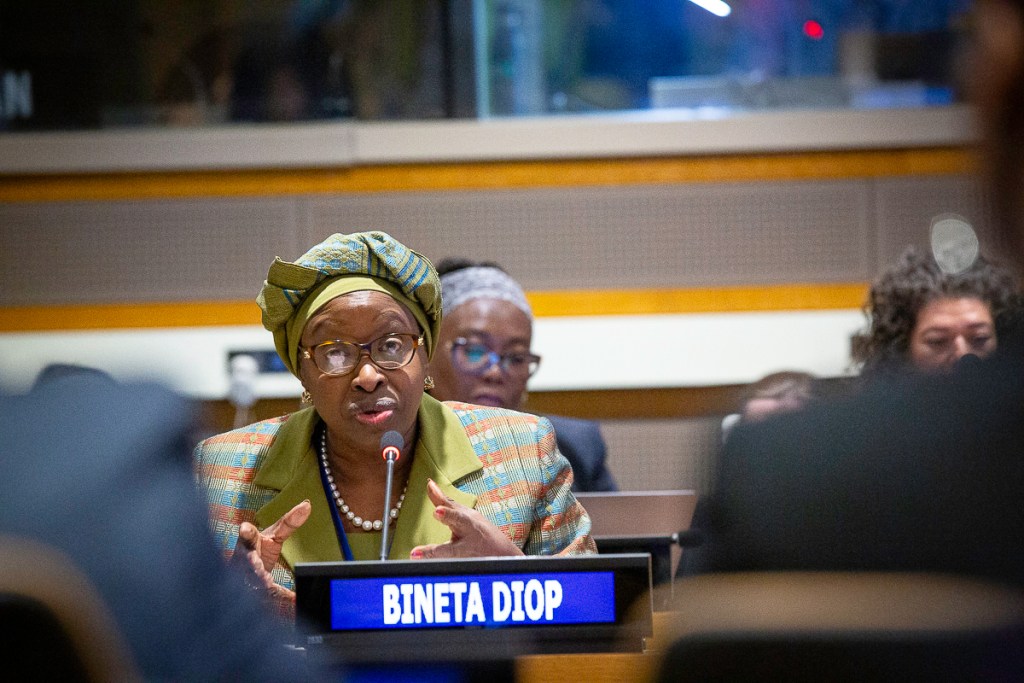

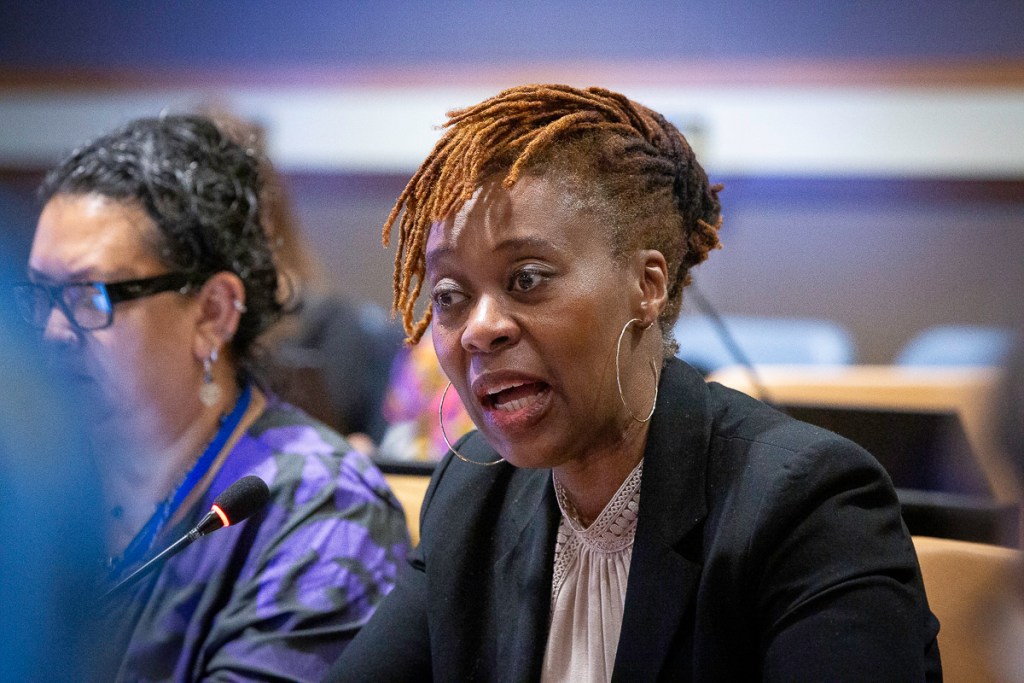

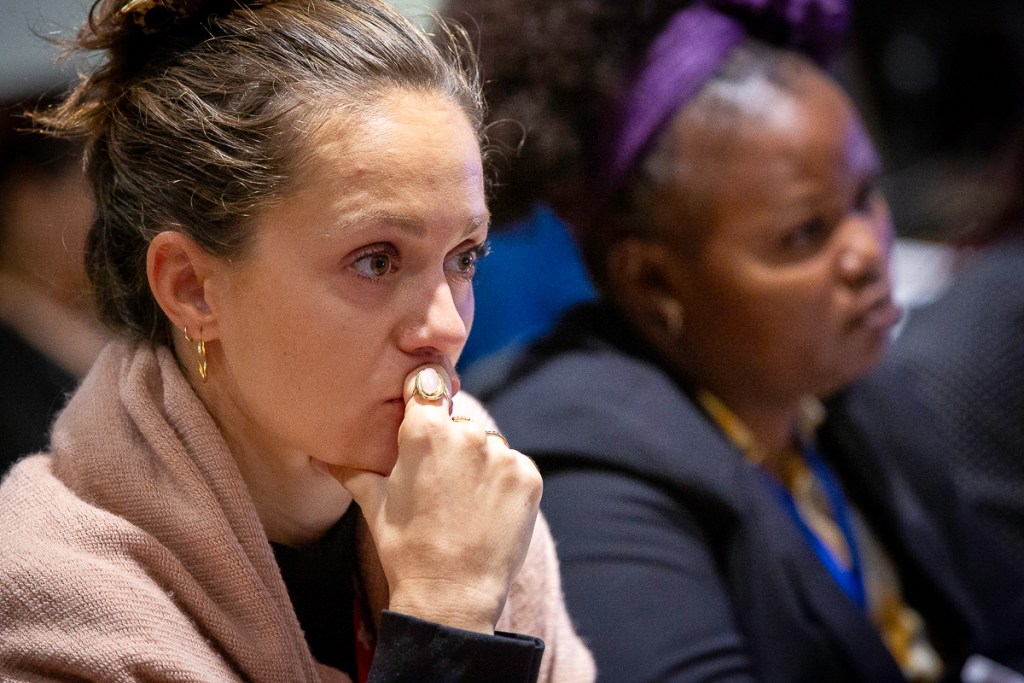



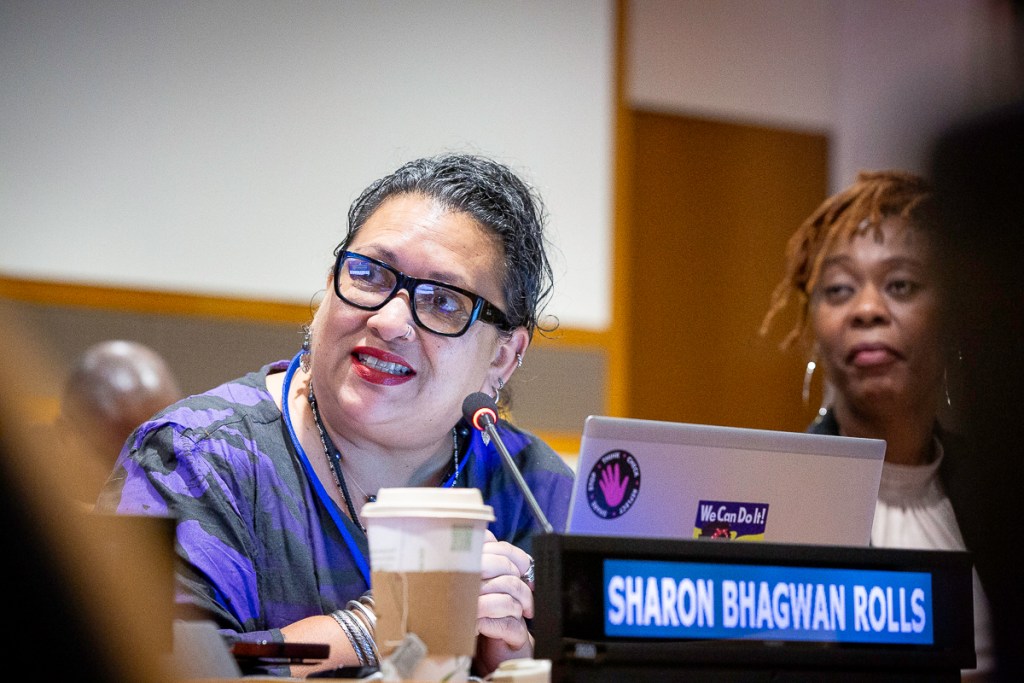
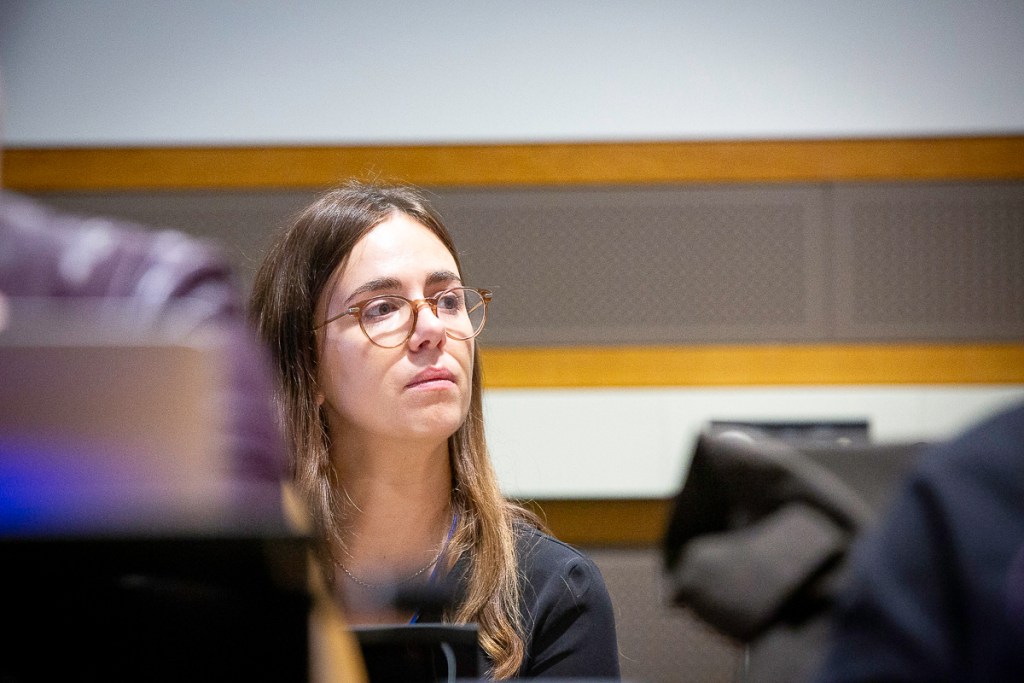


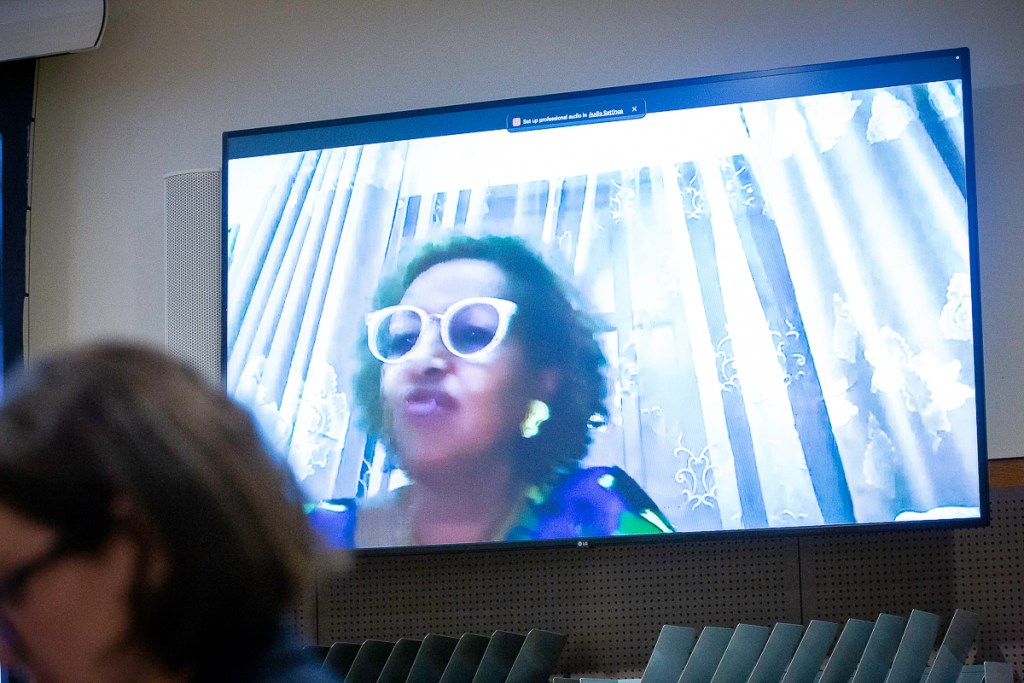
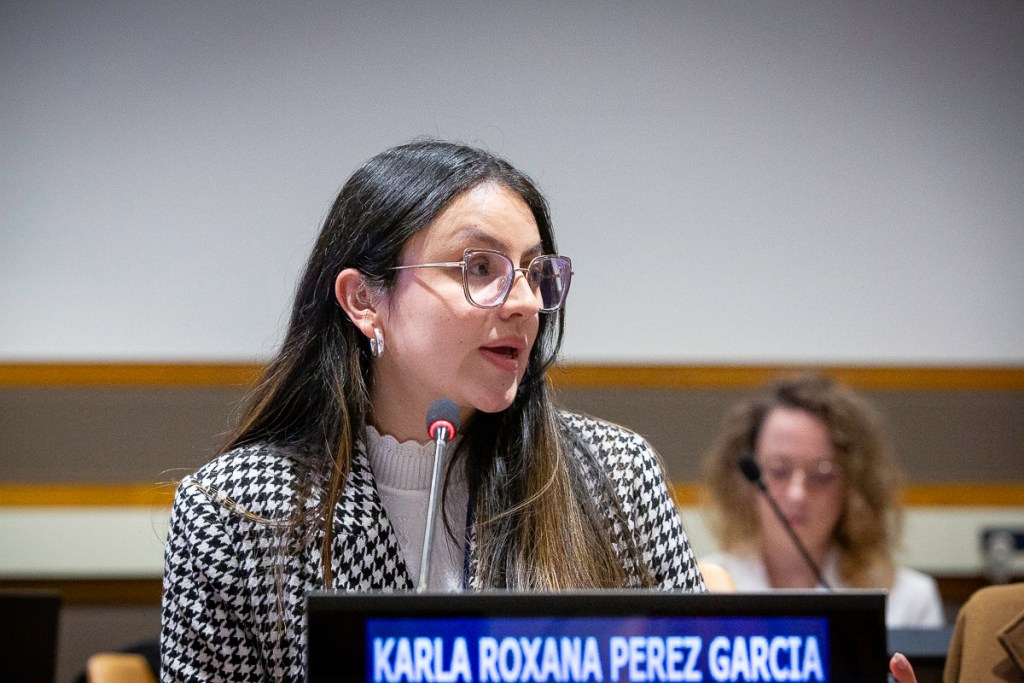
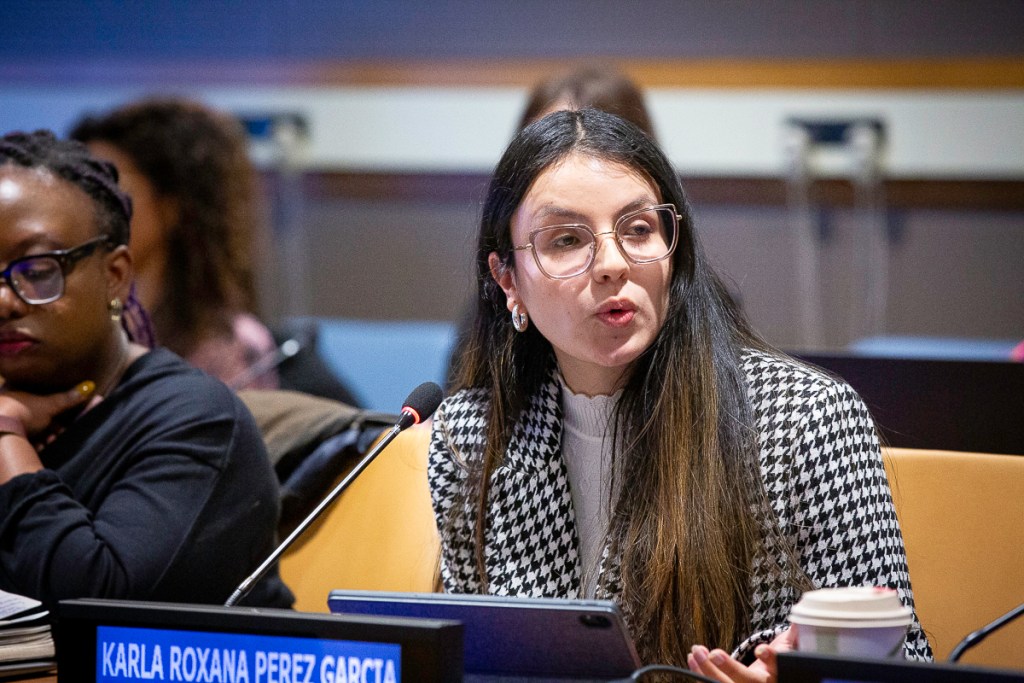
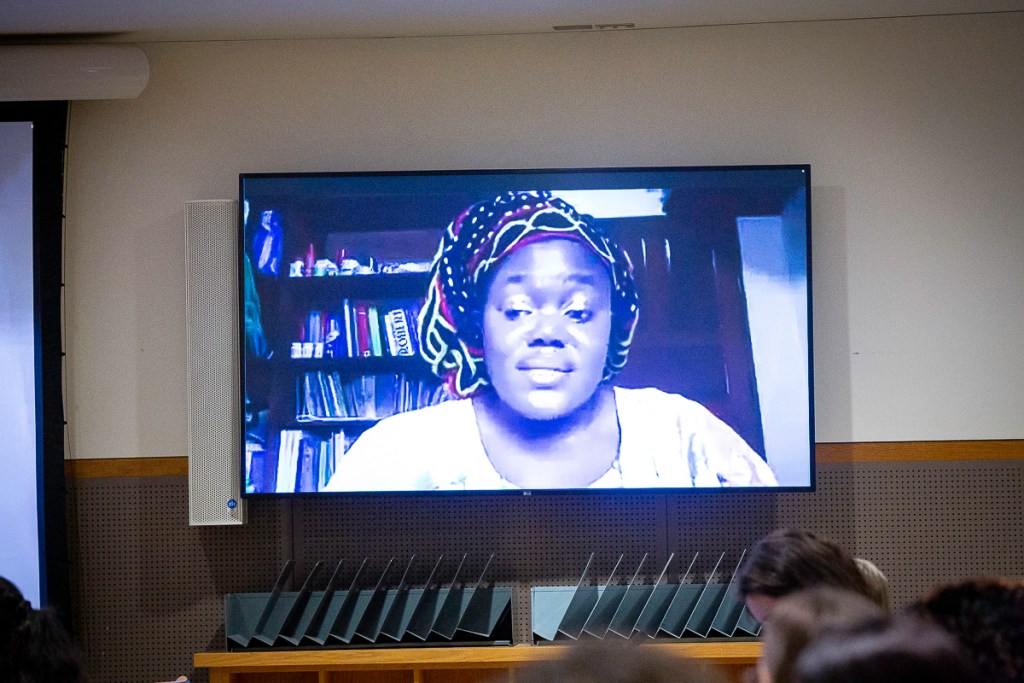
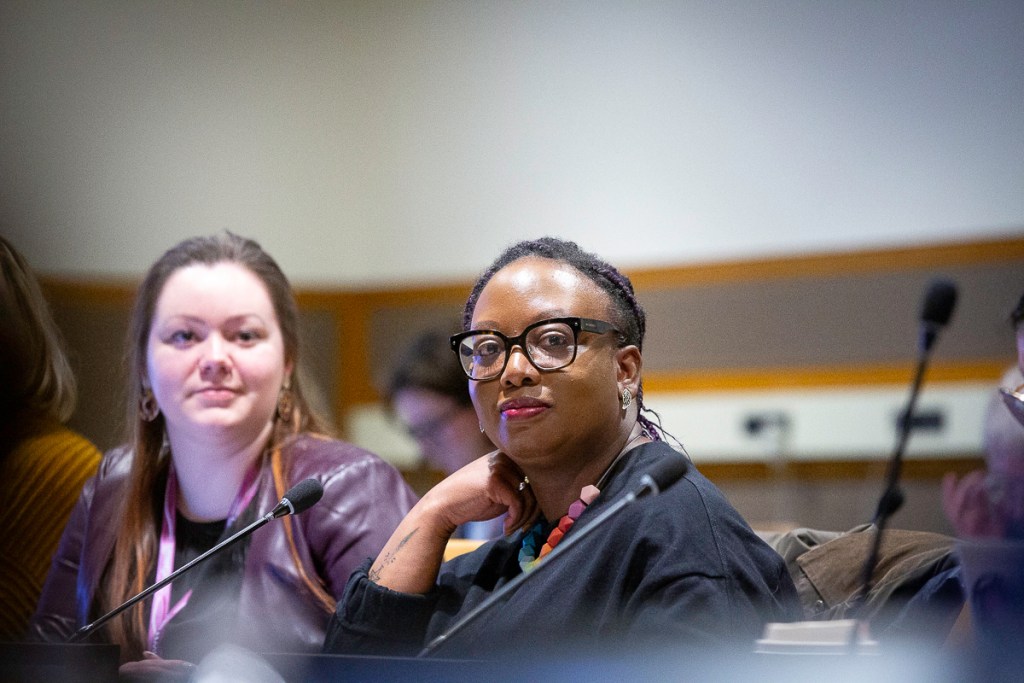
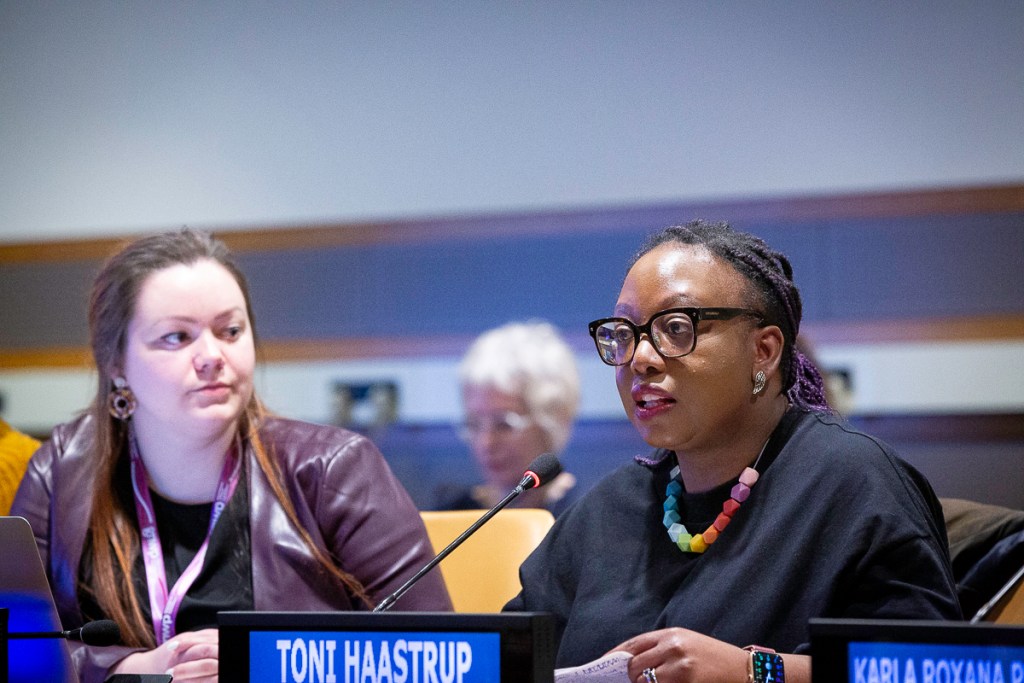
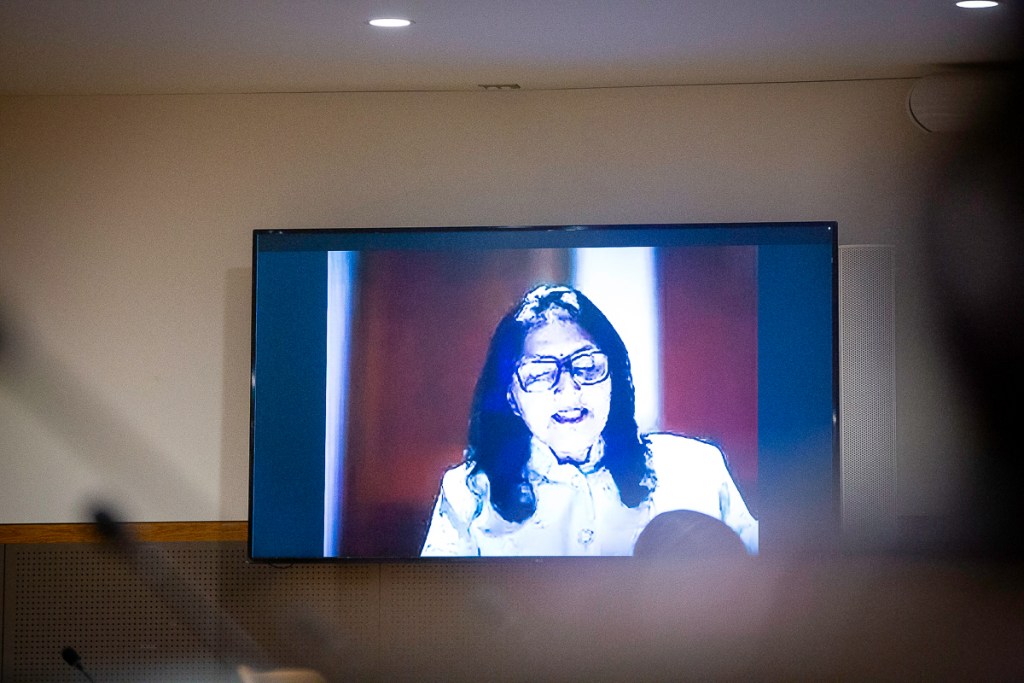
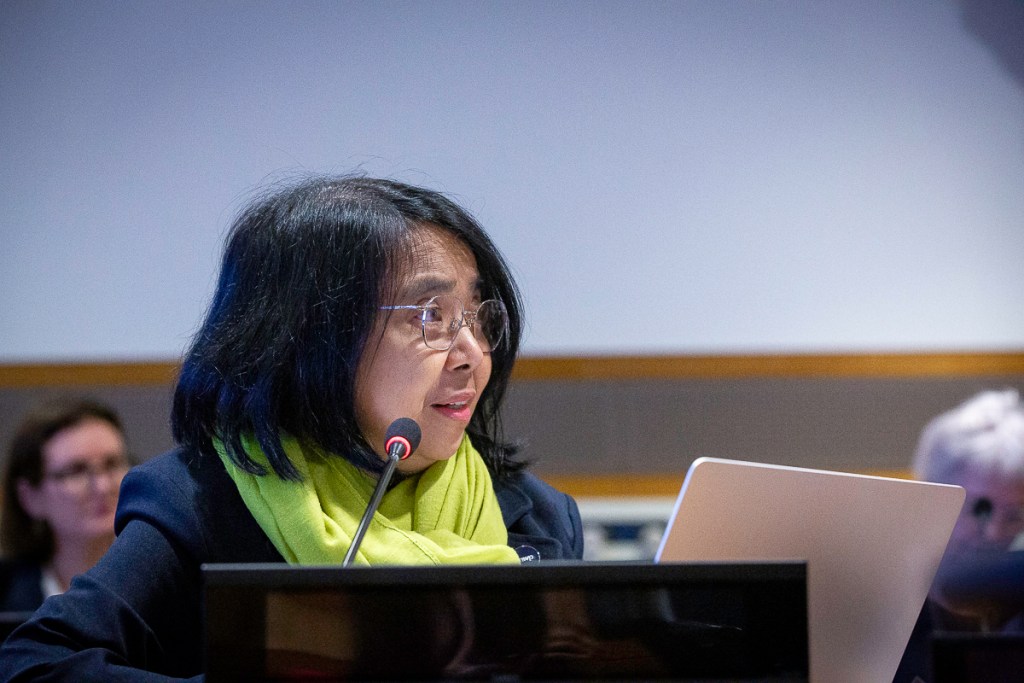
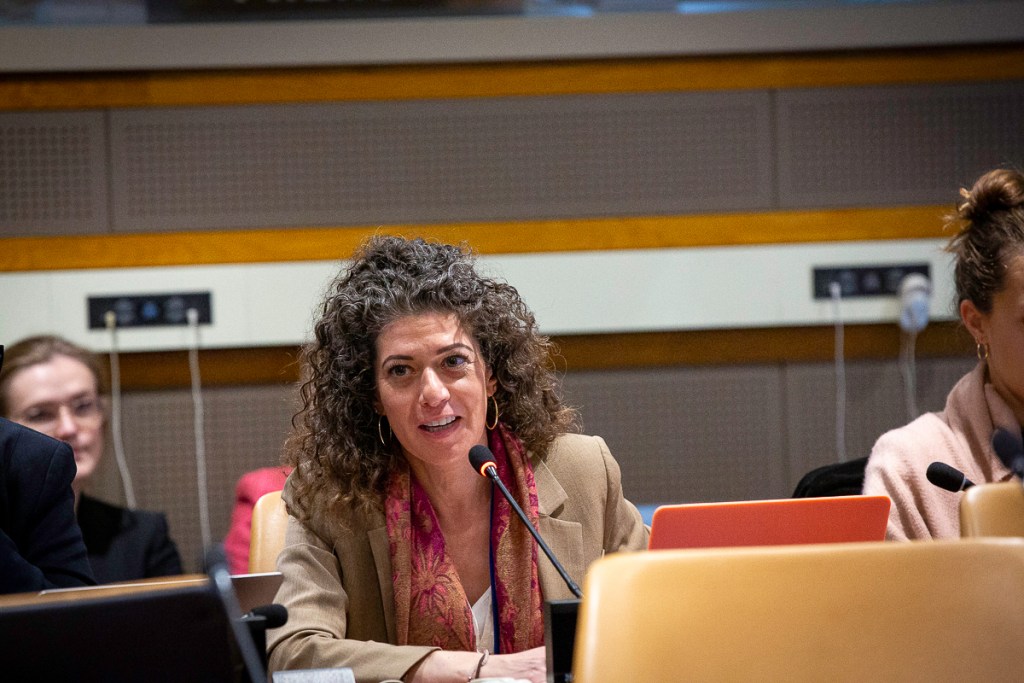
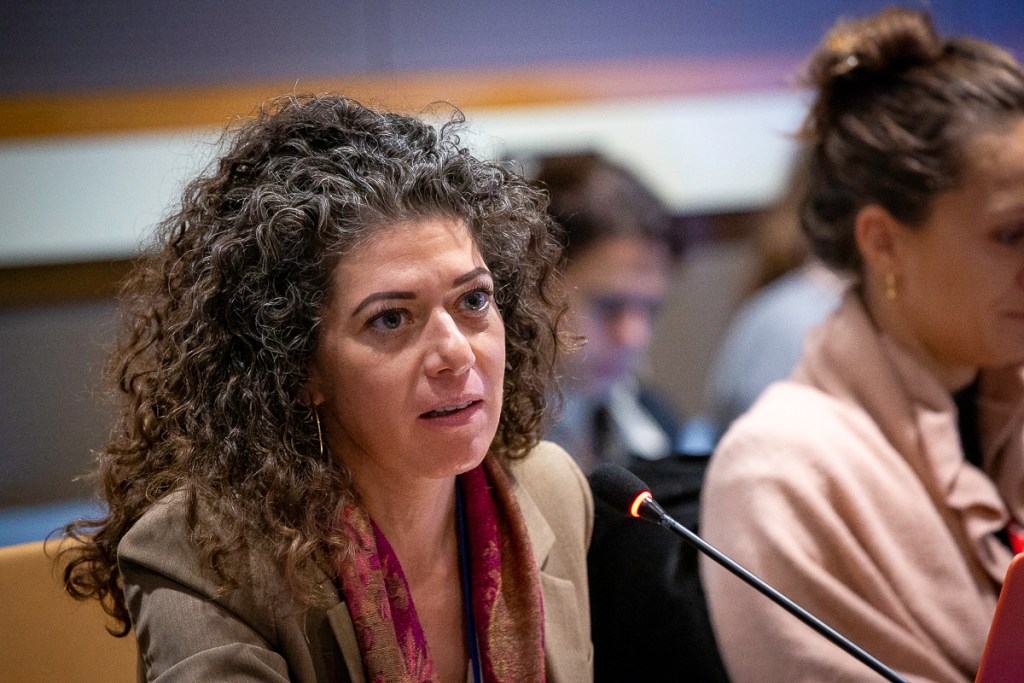
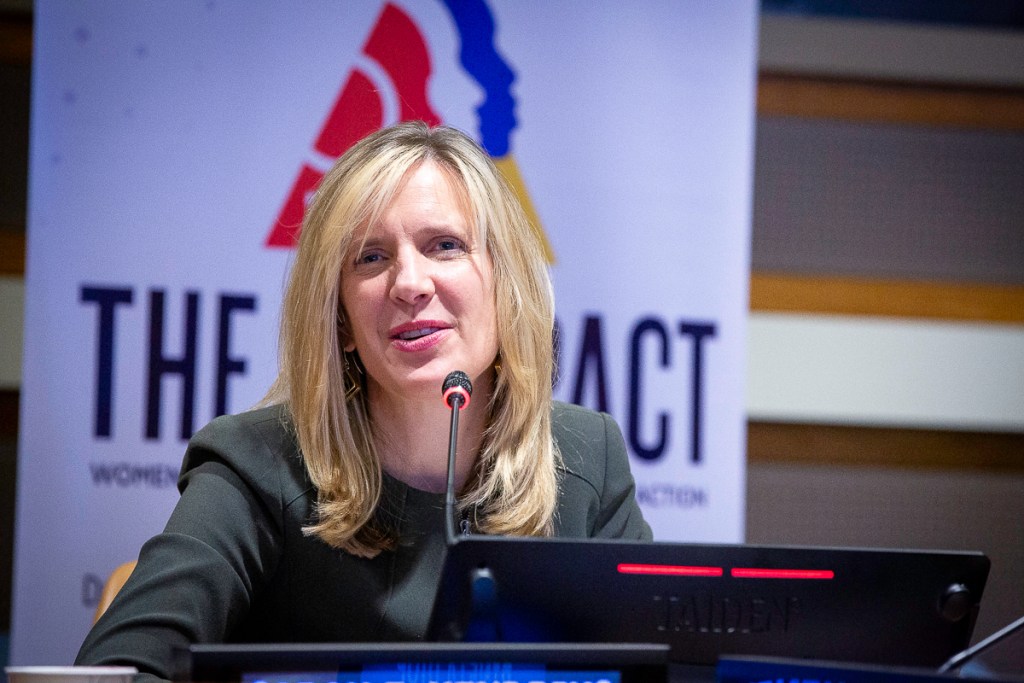

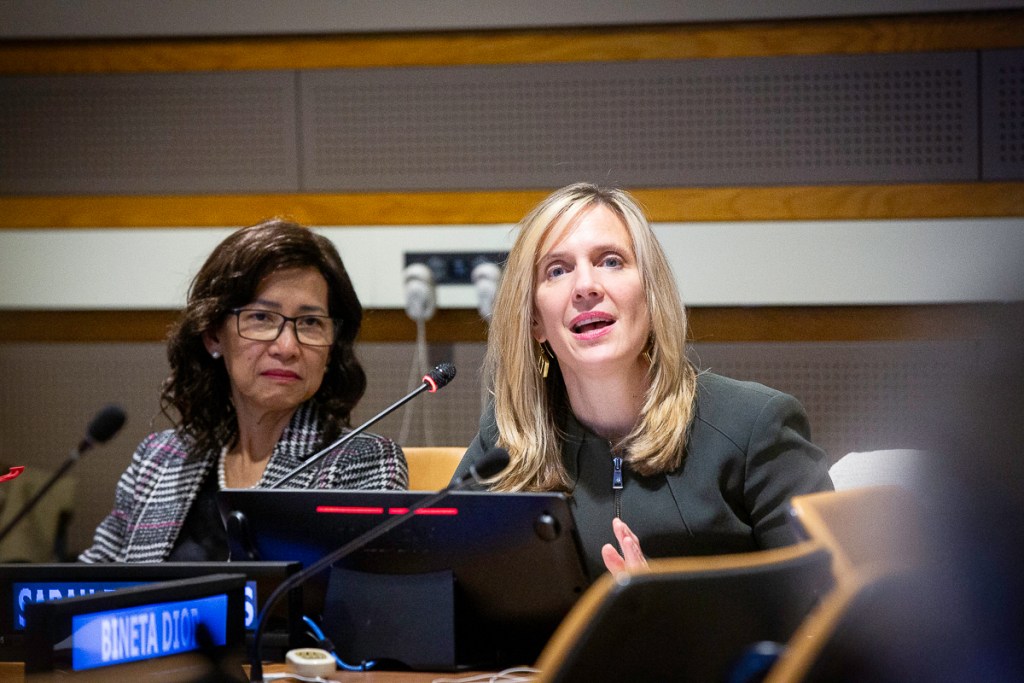
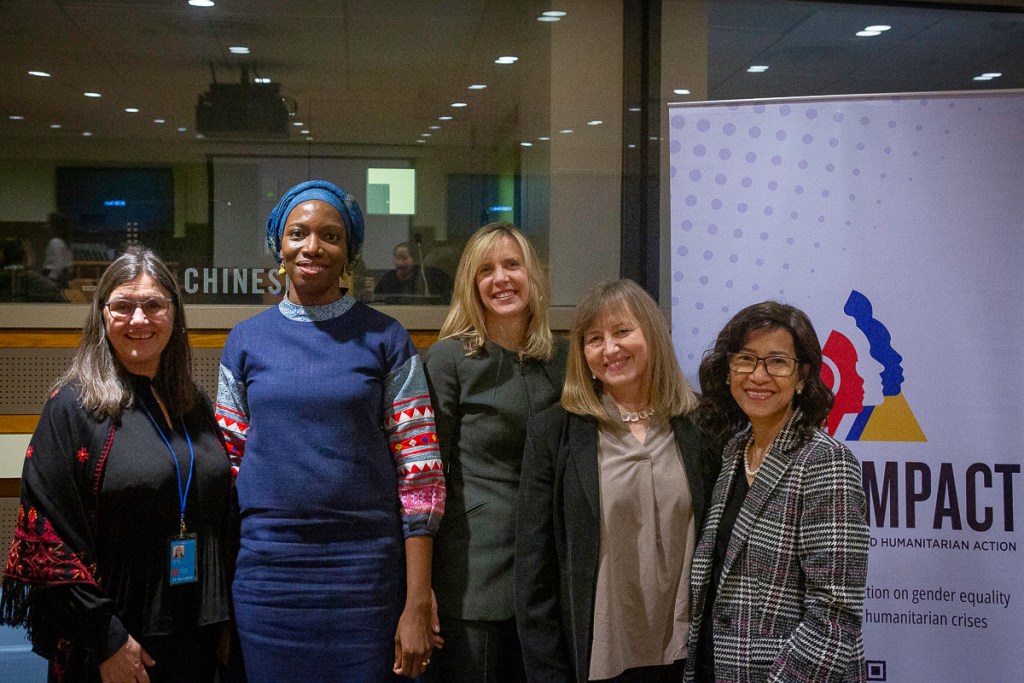
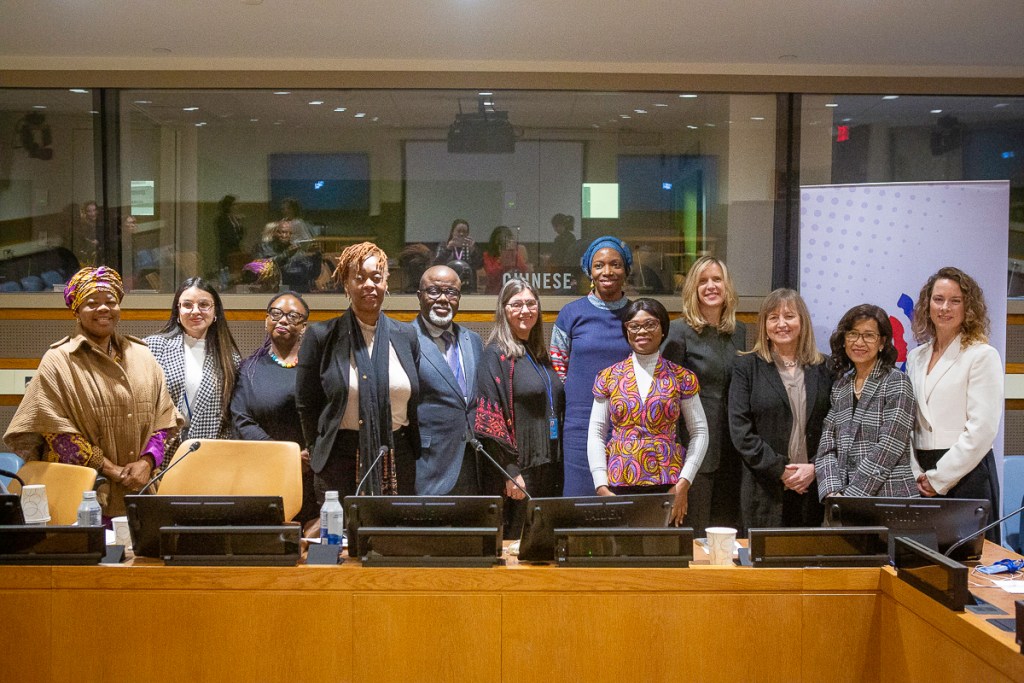
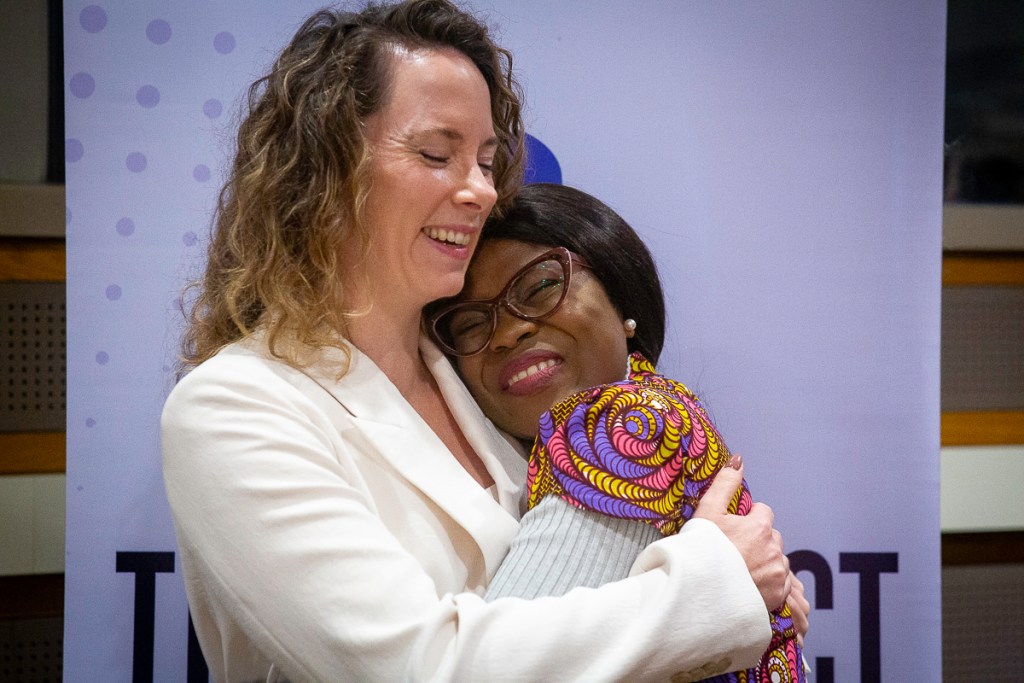
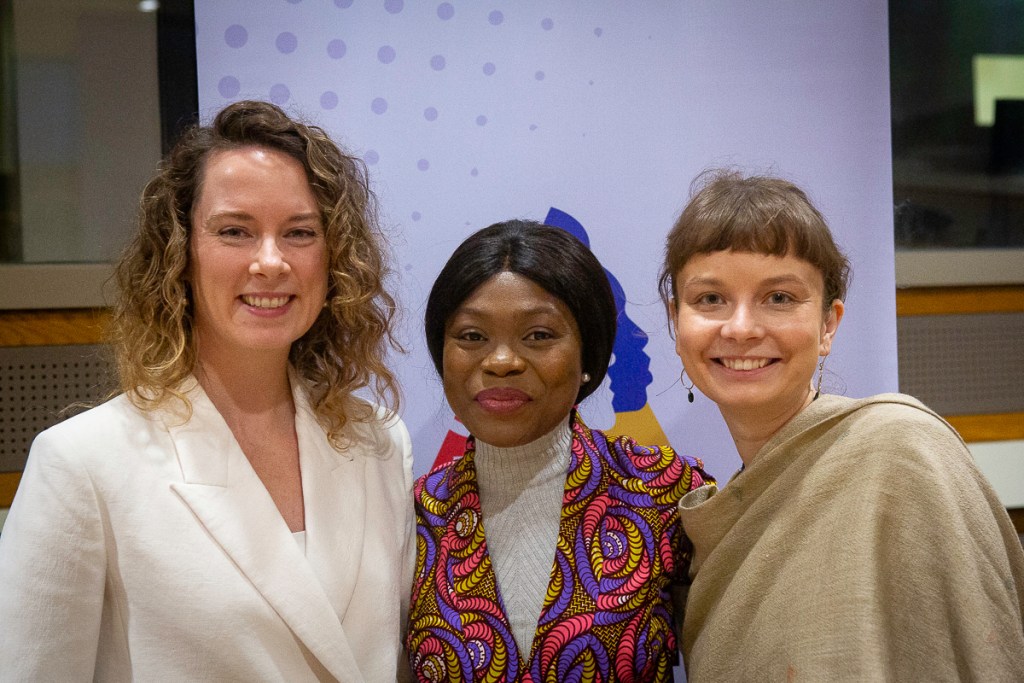
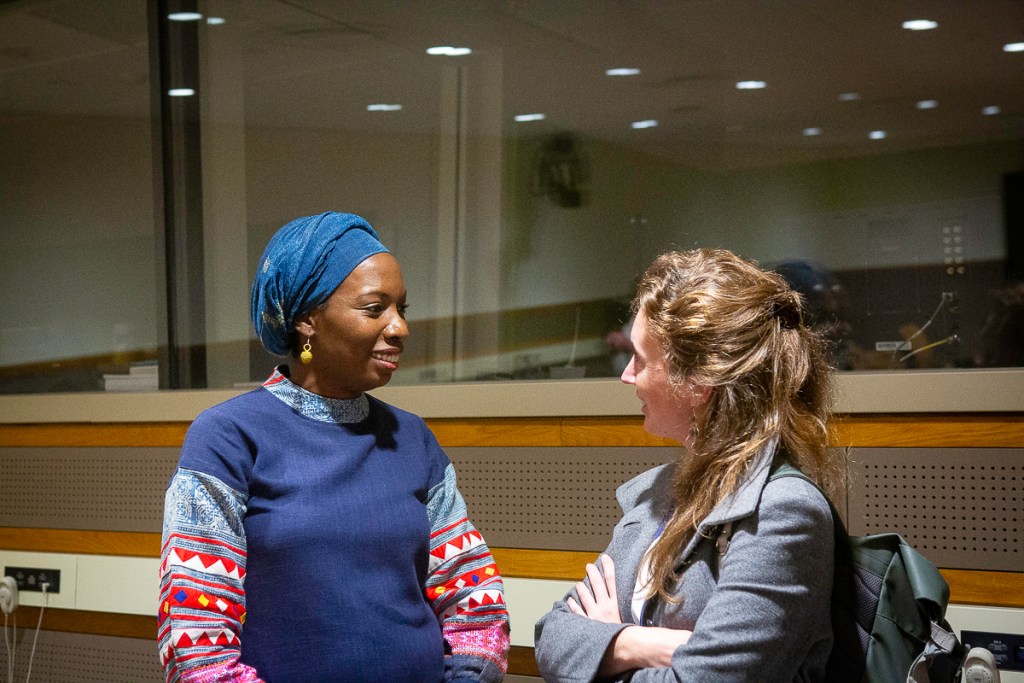
Photos by Babita Patel
